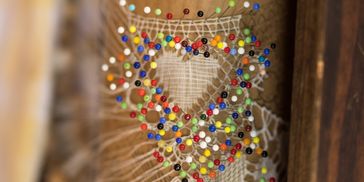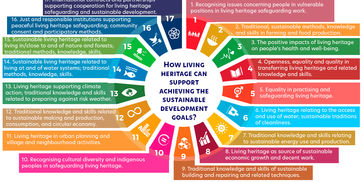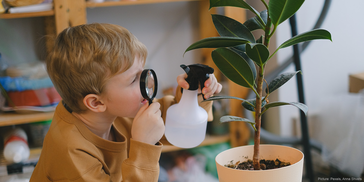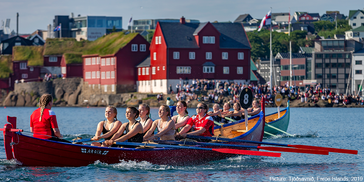
LIVIND – News and Stories
- NEW! LIVIND Meeting in Riga, 12–13 June 2023
- The LIVIND project to finance twenty initiatives on living heritage in Northern Europe
- Extra funding takes the LIVIND project up to 2024!
- LIVIND Meeting in Helsinki on 6–7 June 2022
- LIVIND Webinar and workshop were held in Finland in March 2022
- Blog post: LIVIND Project Coordinator Elisa Kraatari about the LIVIND project to the Finnish Local Heritage Federation’s blog on 11 March. You can read here the English version of the text.
LIVIND Meeting in Riga, June 2023
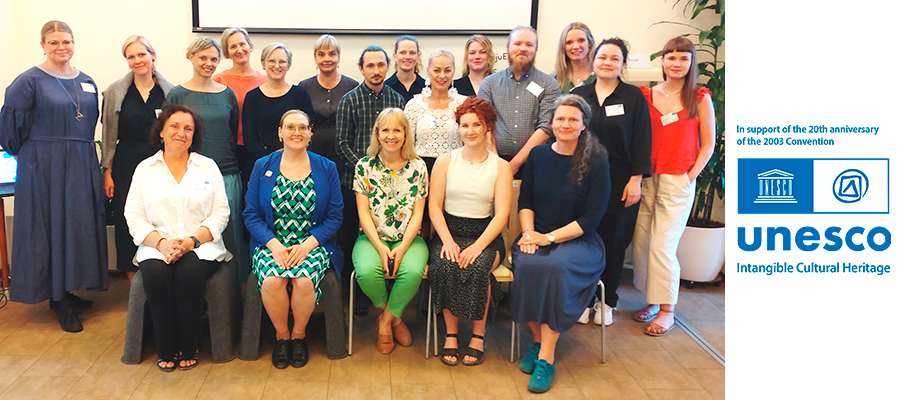
We held our second LIVIND ‘in-real-life’ meeting in Riga, Latvia, on 12–13 June 2023.
In Riga, we continued our learning process in the LIVIND project themes, the interlinks between living heritage and sustainable development.
During our time together, we focussed more on the connections between ICH and CCIs (that is: Intangible Cultural Heritage and Cultural and Creative Industries) while bearing in mind ethics and balancing between sustainability aspects of safeguarding living heritage.
Keynotes to inspire us
On Monday, 12 June, we heard an introductory keynote speech from Sari Kaasinen, founder member of the world-wide known folk band Värttinä, entrepreneur and promoter of cultural heritage in tourism. In the afternoon workshop the meeting participants were led further to unravel the crossroads between living heritage and cultural and creative industries. The workshop was led by the creative entrepreneurship experts Olga Kizina from Berlin, and Krista Petäjäjärvi, representing our funding project partner based in Riga, the NDPC (Northern Dimension Partnership on Culture). Discussions addressed the possibilities of collaborations between living heritage practices and creative businesses and how creative entrepreneurial practices could support living heritage.
A fluent continuation to this discussion was found in Tuesday's keynote speech by Johan Barstad (University College for Green Development, Norway). Underlining the importance of interaction between different partners he concentrated on the local level activities. Here, the perspective on entrepreneurial activity was also steered to local communities, to the need to find resources in the local contexts including local level networks, and indeed, local culture and cultural heritage. Johan also reminded that the UN Agenda 2030 SDGs (Sustainable Development Goals) are tools for action instead of measurement.
See full programme on the event page.
Pilot Projects in Spotlight
Along with the expert viewpoints, this meeting was specific with the numerous Pilot Projects. During the two days, we heard up to 12 presentations about pilot actions, their perspectives on sustainability, and also results!
Research Team results and more workshops
On the second meeting day we also heard mid-way results from the LIVIND Research Team that had analysed the Periodic Reports (part of the 2003 Convention work) bringing together a rich collection of good practices on how living heritage activities connect with aspects of sustainable development (economic, ecological, social, and cultural sustainability).
In the afternoon workshops, we had a special section for the 2003 Convention Focal Points participating the meeting and another group for further partners including pilot projects. The workshops allowed participants to share thoughts about safeguarding living heritage and the interconnections to sustainability and the different aspects.
Online is everyday work - meeting live a cherry on the pie!
The meeting brought together some 35 participants in total. While keynotes and two of the pilot projects were heard over online connections, thirty people met in the wonderfully summery setting of the Riga Old Town, having arrived from across our project area, all the way from Nuuk, Greenland to Katowice and Istebna in Southern Poland!
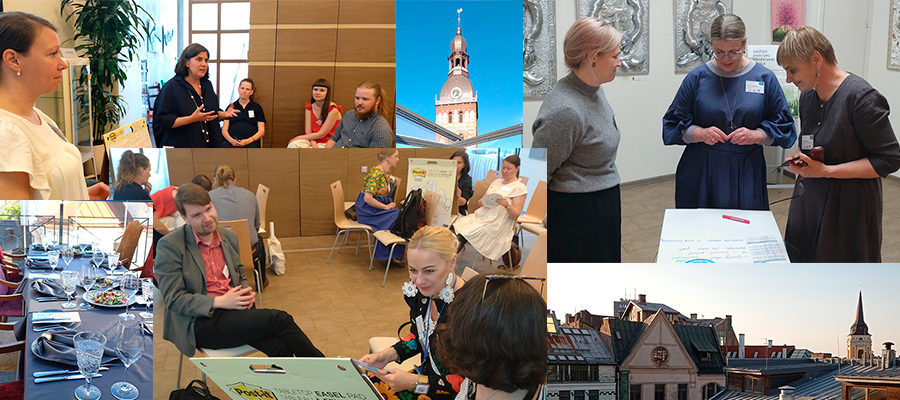
The meeting was organised as part of LIVIND activities with the kind support of the Latvian National Centre for Culture and the Northern Dimension Partnership on Culture. LIVIND Meeting in Riga was acknowledged as an event to celebrate the 20th anniversary of the Convention for the Safeguarding of the Intangible Cultural Heritage.

Extra funding for the LIVIND project – more support for piloting practices for sustainable living heritage in partner countries
The international LIVIND project led by the Finnish Museum Agency will continue for an extra year. Begun in September 2021, the additional funding extends the project until summer 2024. With the additional funding, the project will, among other things, support the implementation of practical pilot experiments in the nine partner countries.
The online events held during the first year of the project LIVIND – Creative and living cultural heritage as a resource for the Northern Dimension region have already reached hundreds of participants from more than 30 countries. The goal of the project is to strengthen the participants' understanding and know-how of how living heritage can support sustainable development and how living heritage could be developed and used in sustainable ways.
The project collects experiences and identifies how these goals can be achieved locally with practical operations. With the additional funding, the project will be able to support the implementation of several practical pilot experiments in partner countries. Experiments can concern different dimensions of sustainability, for example improving the ecological sustainability of living heritage events or creating a culturally sustainable marketing plan to support tourism products that draw on tradition.
The implementation of the LIVIND project utilizes online events and shared virtual workspaces. The project also includes a research section, that summarizes the current situation and development needs of living heritage and sustainability in Northern Europe. The results obtained during the project will be published as a data bank that can be used by everyone online.
The project brings together living heritage experts and activists from nine Northern European countries to discuss together how living cultural heritage and sustainable development are connected in different ways. The project partners also include the Northern Dimension Cultural Partnership (NDCP), the Sámi Council and the Nordic-Baltic ICH Network of non-governmental organizations. The main financier of the project is the Ministry for Foreign Affairs of Finland, which through the project supports cultural work in the Northern Dimension area.
The LIVIND project is the first project in the field of intangible cultural heritage in this scale in Northern Europe. The project is based on UNESCO's Convention on Intangible Cultural Heritage, the Council of Europe's Faro Agreement and the goals of the UN's Sustainable Development Programme, Agenda 2030. At the same time, the project meets the goal of the NDPC to strengthen the networking of experts in the creative field and intangible cultural heritage in the Northern Dimension region.
LIVIND in short
Participating countries and areas: Finland, Sweden, Norway, Denmark, Iceland, Åland, Greenland, Faroe Islands, the Sami area, Estonia, Latvia, Lithuania, and Poland. The total budget of the project is 463,000 euros, of which the Ministry for Foreign Affairs covers for approx. 84 % from the Baltic Sea, Barents and Arctic cooperation allocation. Other financiers are the Finnish Heritage Agency and the Northern Dimension Partnership on Culture (NDPC).
LIVIND Meeting in Helsinki 6-7 June 2022
The LIVIND project builds on communication and exchange through virtual tools and platforms. Therefore, the LIVIND meeting in Helsinki on 6–7 June felt all the more festive, because it was the first time many project participants met each other in real life mode!
In addition to learning to know each other better, we made use of this meeting to review LIVIND project proceedings. During the spring months of 2022, LIVIND project partners had gathered to four Thematic Sessions, in which the four aspects of sustainability, economic, ecological, social, and cultural, were reflected with regard to living heritage. These sessions created the basis for planning international and open LIVIND webinars. Now, it was time to reflect on the results and lessons learned so far.
Also, during the spring months and early summer, our partners from Lithuania, Faroe Islands, Iceland and Norway had arranged local events that functioned in spreading the message about interlinkages between living heritage and sustainable development. At our meeting, we also saw presentations and heard reflections about those events.
Finally, we also took a look into the future plans of the project and started planning for upcoming activities and events.
The two sunny days were spent in a very friendly and energetic atmosphere resulting with lots of ideas and thoughts to continue working with also after the summer holidays in autumn season 2022!
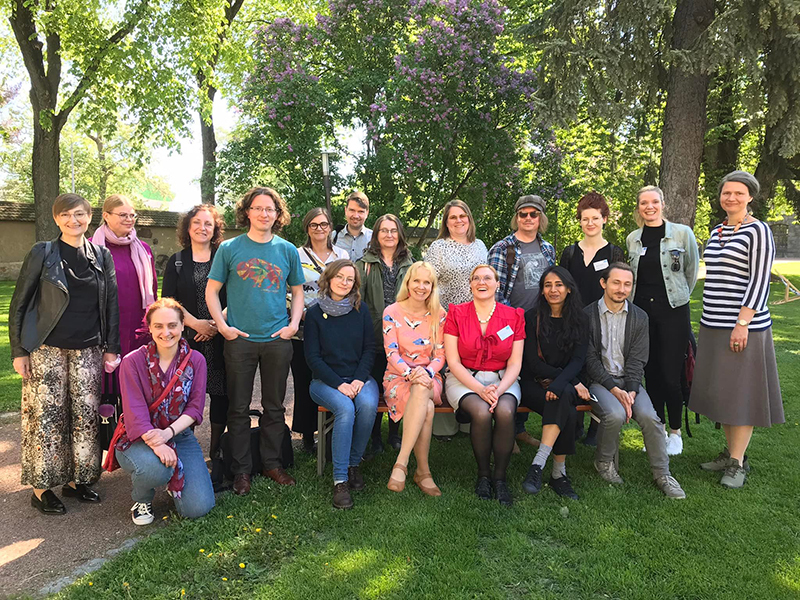
Webinar and workshop in Finland, March 2022
LIVIND – living heritage and sustainable development
WEBINAR Wed 9 March 2022 from 13.00 to 15.30 / Workshop Wed 16 March from 14 to 16
How are living cultural heritage and sustainable development linked? What kind of practices have been developed by the actors of the field? What can each of us do more in our lines of work?
More than 50 people joined the LIVIND local webinar on 9 March to learn more about the project and how to participate. In the expert speeches, we heard more about how the UN Agenda 2030 and the Sustainable Development Goals are linked to the work of the living heritage. In addition, we learned about how local heritage associations, actors in the fields of nature and the crafts promote sustainable development in their work. As part of the webinar programme, the Finnish Heritage Agency and Visit Finland released a guide to the responsible use of living heritage in tourism. The day's program also included the charming Puhti Duo.
The workshop on 16 March with ca. 30 participants delved deeper into living heritage and perspectives of sustainability. The LIVIND Howspace platform was used to learn, share experiences and discuss during the workshop.
The events were presented as part of the European Heritage Days. The theme of the EHD in 2022 is Sustainable Heritage!
PROGRAM
13.00 Welcome to a sustainable future! Leena Marsio, Finnish Heritage Agency
13.05 LIVIND project – living heritage and sustainable development in Northern Europe, Elisa Kraatari, Finnish Heritage Agency
13.20 Culturally sustainable development and Agenda 2030, Antti Huntus, The Arts Promotion Centre
13.35 The Common Path – A guide to responsible tourism productization of living heritage, Susanna Markkola, Visit Finland
13.50 Puhti Duo – Anne-Mari Kivimäki and Reetta Iles
14.00 Coffee break
14.10 Traditional skills, climate campaigns and energy security – associations on the issue of sustainable domestic work, Marika Punamäki, Finnish Local Heritage Federation
14.20 Diversified sustainability. Reetta Karhunkorva from Lusto – Finnish Forest Museum and Kikka Jelisejeff from Finnish Crafts Organization Taito, interviewed by Elisa Kraatari, Finnish Heritage Agency
14.50 Division into groups
15.20 Summary of discussions
15.30 Webinar ends
Intangible cultural heritage is living also in critical times
I was invited to write a post to the Finnish Local Heritage Federation’s blog by the end of February. With the skiing holidays approaching, I accomplished the text a week earlier. After a bit of delay in schedules, I got an extra week, but by that time my text had become dated. Following Russia's aggressive invasion in Ukraine, the light-hearted word puns of the text felt naive, and even the project description faced questions. My new blog post is still about the LIVIND project – a text written at this present situation.
The international LIVIND project started last autumn with partners in ten northern European countries and with focus on the links between living heritage and sustainable development with the aspects of ecological, economic, social, and cultural sustainability. The project, coordinated by the Finnish Heritage Agency, is based on the UNESCO Convention for the Safeguarding of the Intangible Cultural Heritage, but the UN Agenda 2030 and the 17 related sustainable development goals (SDGs) have a central role. As such, the project is very timely.
Now, the events of recent weeks have brought new questions onto the project table. The LIVIND project’s area of co-operation concerns the Northern Dimension area: the Nordic countries, the Baltic countries, Poland, and Russia. The project is largely funded by the Finnish Ministry for Foreign Affairs' funds for the Baltic Sea, Barents Sea and the Arctic regions (IBA). In the LIVIND project, our partners include the Kizhi Museum in the Republic of Karelia and the University of St. Petersburg (SPbU). We are currently waiting for guidelines on how to continue our work with the project.
Because the LIVIND project area is wide, our work is based on online working such as video conferencing and using virtual workspaces. In mid-February, the project partners met twice to reflect on living heritage in relation to aspects of economic and ecological sustainability. Further meetings were scheduled for the first week of March when we had planned to discuss social and cultural sustainability.
Indeed, to discuss links between living heritage and social and cultural sustainability in northern Europe in the first week of March 2022. Who would have thought that we would face questions about the sustainability of living heritage in such a drastic situation? We have project partners in Lithuania and Poland. Their thoughts are overshadowed also by the geographical proximity of military action and their consequences. We decided to postpone our meetings: as cultural heritage experts, we, like anyone, have to draw on each of our own heritage and resilience skills so that we can continue discussion on these important issues.
Living, intangible cultural heritage is often associated with activities that reinforce the mind and bring a sense of belonging: this includes many ways of playing and working together, cooking, dining, and practising craft skills among the many other things. The cornerstone for safeguarding intangible cultural heritage is the work done by and with communities: communities are bearers of living heritage, and they are supported in their activities.
War shakes up everyday life and affects communities in different ways, but intangible cultural heritage can support us also in crises. While sanctions and firepower are being negotiated elsewhere, peaceful gatherings and methods of showing support glue us together to oppose unjustifiable violence and to take actions of empathy and care. For example, calling people together to sing as one choir in public places reappears time and again as an empowering activity.
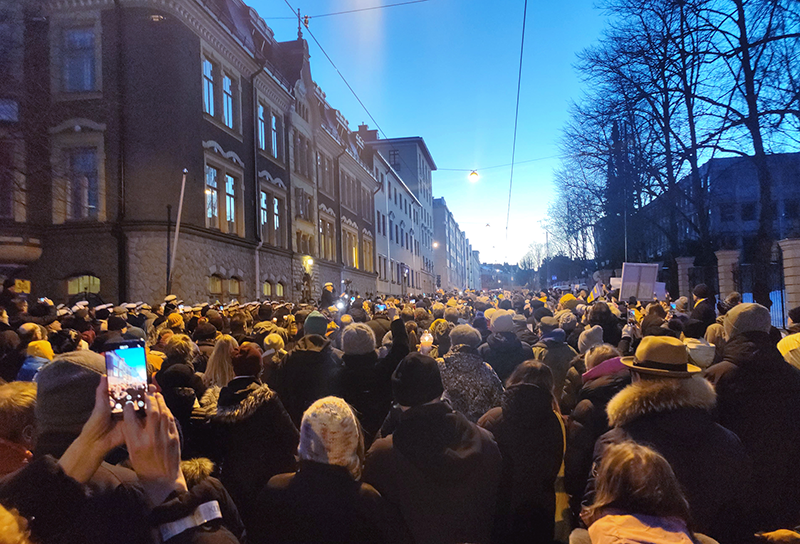
Picture: The university chorus, YL Male Voice Choir, showed their support for Ukraine by performing in front of the Russian Embassy at Tehtaankatu in Helsinki on 1 March, 2022. They invited people to join and to sing as one choir the Finlandia anthem with lyrics altered to support Ukraine. Photo by Eira Sillanpää.
When war comes close, it underlines the contrast between a safe, familiar life and uncertain threats. On the first day of March, a report by the UN Intergovernmental Panel on Climate Change (IPCC) was published, which paints an even gloomier picture of the future. The things we are most obviously used to, the waters, the climate, and the land we live on are changing in ways of which we have no experience. The shift towards the unknown lead to increasing uncertainty, and certainty, as has been seen, is sought by any means. That is why pursuing the UN sustainability goals is also about pursuing sustainable, human security guarantees.
The LIVIND project looks at intangible cultural heritage and sustainable development issues to better understand the broader contexts and identify the many practical ways and means in which living heritage supports sustainability – and how sustainable development supports living heritage. The intangible cultural heritage is often associated with the image of picturesque, seemingly small phenomena, but at the core there is nothing less than the continuity of human life, our daily lives and celebrations as well.
During this year of the LIVIND project, we are looking forward to organizing international webinars and workshops on various themes of sustainability. A webinar for the Finnish-speaking public is held on March 9, followed by a virtual workshop on March 16. The events are open to everyone.
Read more about the LIVIND project and events
Follow the project on Facebook
D.Soc.Sci., MA (Design & Arts) Elisa Kraatari is fascinated by craft and design cultures and how they change. She coordinates the LIVIND project at the Finnish Heritage Agency.
elisa.kraatari(at)museovirasto.fi, p. +358 295 33 6075
Originally published in Finnish on 11 March on the Finnish Local Heritage Federation’s blog.
